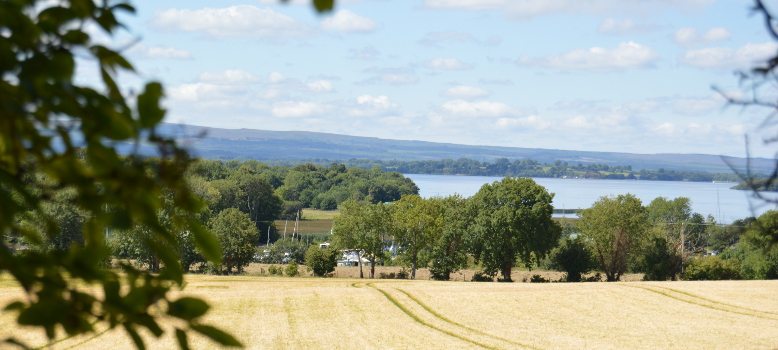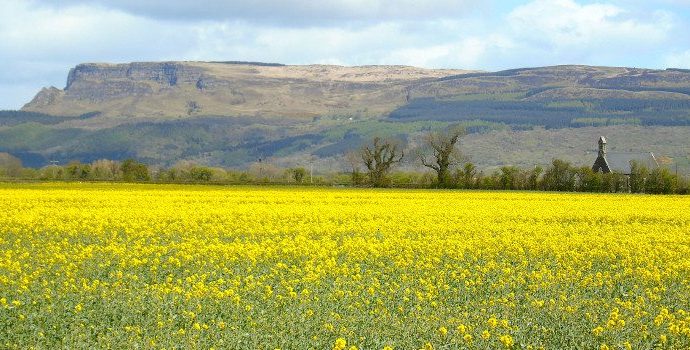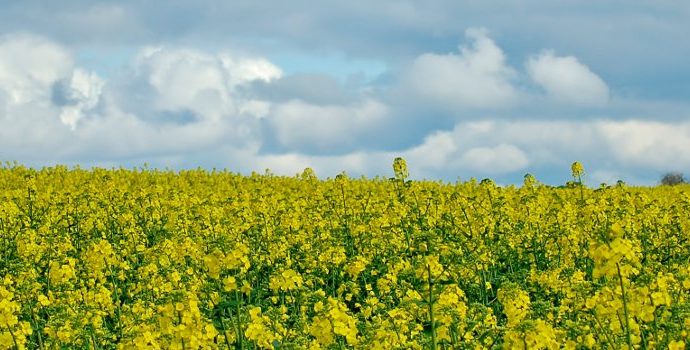Environment & Rural Affairs Council Report March 2022

Activity since last National Council
- IFA made a submission to the public consultation by the Department of the Environment, Climate and Communications (DECC) on Carbon Budgets on the 8th February. A copy of the submission is enclosed or is available online here. The following proposals were included:
- The Climate Action and Low Carbon Development (Amendment) Act 2021 obliges the Minister and Government to ensure that the formation of the carbon budgets do not threaten food production and enable economic development to proceed in a sustainable manner.
- Achieving the proposed carbon reduction targets (22 – 30%) will be extremely challenging for Agriculture and is more complex than mitigation in other sectors. The sector is less consolidated and mitigation measures involve the reduction of emissions which are produced naturally as part of biological processes, thereby limiting the emission reduction options.
- The difficulties in accurately measuring and accounting the reduction impact of the proposed measures for Agriculture in the Climate Action Plan 2021, within the EPA emissions inventories is recognised in the Climate Change Advisory Council (CCAC) Carbon Budget Technical report to “represent a very significant challenge”.
- To provide a sufficient timeframe for adoption and in recognition of the economic and social importance of the sector, the lower carbon reduction target of 22% is needed. This would allow the sector to continue to improve efficiencies, adopt new technologies and innovative practices without needing to reduce output to meet climate objectives which could undermine competitiveness.
- A late-action trajectory would provide time for developing technologies and innovations to be adopted, measured and verified to deliver additional migration potential. This would preserve economic productivity while significantly reducing methane emissions beyond 2030.
- IFA welcomes recognition in the CCAC Carbon Budget Technical report that a requisite element in addressing climate change is to provide appropriate incentives for action. This very much echoes the findings of the Teagasc MACC report which identified incentives and training as key enablers to encourage and support farmers to change practices and uptake mitigation measures.
- Agriculture’s unique potential to offset emissions and be a major part of the transition to a climate neutral economy through on-farm renewables, carbon farming and forest should be maximised to strengthen the sustainability credentials of Irish food production whilst reducing the impact on climate.
- Irish farmers are fully committed to playing their part in reducing emissions, however the carbon reduction target set for the sector must be achievable without undermining the economic viability of the family farm. With appropriate supports farmers can continue to innovate and adapt in Ireland’s transition to a climate neutral economy.
- IFA made a presentation to the Joint Oireachtas Committee on Climate Action on Carbon Budgets on the 13th January, a copy of the presentation is enclosed. IFA followed up with a number of queries following presentation on reasons for late trajectory on emission reduction targets and Nitrates Action Plan particularly in relation to the derogation.
- IFA prepared a briefing note on the Climate Action Plan 2021 that provides an overview of potential measures identified to deliver emission reductions for Agriculture and the estimated emission reduction potential of each measure. A copy of the briefing note is enclosed.
- IFA made two submissions to the Department of Housing, Planning and Local Government (DHPLG) public consultation on the Draft Nitrates Action Programme (NAP) Strategic Environmental Assessment (SEA) report and Natura Impact Statement (NIS) on the 26th January. A copy of the submissions are enclosed or is available online here.
- The SEA report broadly acknowledged (i) the positive or neutral environmental impact of the proposed mitigation measures set out in the draft NAP, (ii) farm holdings with a derogation are not the driver of a decrease in water quality, (iii) there are the significant investment costs associated with increased regulation set out in the draft NAP and (iv) additional incentives will be required to support adoption. The report stressed the importance that measures are fully implemented and complied with to optimise the positive impact on water quality and reverse the downward trend in water quality.
- IFA’s submission reiterated serious concerns in relation to some of the proposed measures that would impose significant financial burden on farmers or are impractical, while the benefits to water quality are negligible, including (i) the retention of the outwintering eligibility for farms with stocking rate less than 140 kg/N/ha, (ii) the compulsory use of Low Emission Slurry Spreading (LESS) on farms operating below 100 kg/N/ha from 2025 and (iii) proposed maximum 14-day interval for cultivation in fields where straw is baled.
- IFA met with DAFM officials to outline concerns with regards the proposed measures in the draft NAP and to get an update on the derogation in advance of the March meeting with the Commission. At meeting IFA reiterated its position that increased regulation must not be introduced to address non-compliance issues.
- IFA made a submission to the EPA public consultation on Land Use Review on the 4th February. A copy of the submission is enclosed. It stated that farmers must to be recognised as crucial decision makers when it comes to the land use review process and must be fully involved in the discussions. It continued that farmer, and understanding their motivation will be critical to the process. It proposed that a study is undertaken to inform the land use review process, to improve the understanding of farmers’ choices under the consideration of climate change, varying economic conditions, and different policy regimes.
- The Code of Best Practice for National and Regional Greenways and Greenway Sustainability Payment were published in December following negotiations with IFA. The Code and Greenway Sustainability Payment rates can be viewed online here. The Code provides information on the planning, design and construction phases of a Greenway development, including an overview of the public consultation processes. There is detailed guidance to farmers on all aspects of the process when the preferred route to ensure they are treated fairly and equitably. As part of the negotiation process IFA agreed with Transport Industry Ireland (TII) that the Code will be reviewed on a bi-annual basis initially and updated where required. It will be reviewed on an annual basis thereafter.
- IFA presented at various Commodity (Dairy, Livestock & Sheep), County and Regional Executive (South Leinster) meetings on Climate Action Plan and draft NAP.
- IFA met with Brad Burgess, New Zealand Ambassador and representatives from NZ Federated Farmers including their President, Andrew Hoggard via Zoom to discuss the He Waka Eke Noa (Primary Sector Climate Action Partnership). The new initiative aims to support farmers and growers to reduce agricultural emissions and build the sector’s resilience to climate change.
- An IFA delegation met with Minister Hackett on Liam Delaney’s farm (Laois IFA’s Environment representative) to discuss the proposed eco-schemes, proposed measures in Nitrates Action Plan, Climate Action Plan and ongoing issues with forest licences.
- IFA attended a number of meetings meeting with Teagasc, Tipperary Energy and Tipperary County Council in regard to organising an Energy in Agriculture event which is due to be held in July 2022.
- IFA attended a number of meetings including; Irish Fertiliser Association, the Water Forum, ASSAP Farmer Consultation Group, the Greenway Stakeholders Group, and the Signpost Communications Working Group.
- IFA have had a number of meetings with TII in respect to updating the existing Roads Agreement with discussions and negotiations ongoing.
- IFA made a number of submissions to Bord na Mona on the Draft Rehabilitation Plans for a number of bogs under the Peatlands Climate Action Scheme including:
- Timahoe South Bog and Gilltown Bog, Co. Kildare.
- Knappogue Bog and Derraghan Bog, Co. Longford.
- Carranstown Bog, Derrybrat Bog, Derrinboy Bog, and Noggusboy Bog, Co. Offaly.
- Bunahinly Kilgarvan Bog, Co. Westmeath.
- The Teagasc National Farm Survey – 2020 Sustainability Report was published in November showed that:
- Emissions: Total farm emissions on the average dairy farm increased in 2020, largely due to an increase in the average herd size. However, emissions per hectare on dairy farms remained relatively stable, as the average dairy farm area increased. The emissions intensity of milk production (CO2 per kilogramme of Fat and Protein Corrected Milk) improved. Farm level emissions on sheep and tillage farms remained stable in 2020. Farm level emissions on cattle farms declined slightly, while per hectare emissions generally remained stable.
- Ammonia: On average, ammonia emissions showed some decline in 2020 relative to preceding years, across all systems on a farm and per hectare basis. It is notable that, on average, ammonia emissions fell even on dairy farms in 2020 in spite of their increase in output. The driver of reduced ammonia emissions is the increased adoption of LESS. In 2020, 36% of all slurry was applied using the LESS approach compared to just 16% in 2019.
- Nitrogen balance and use efficiency: N surpluses declined and N use efficiency tended to improve in 2020.
- IFA attended the Signpost Programme Virtual General Assembly in December. It focussed on some of the key areas that will help reduce emissions on Irish farms including soil and nutrient management, tackling methane emissions, the role of sequestration as well as the significant role protected urea plays in reducing emissions. An overview was also provided on some research in areas including carbon sequestration, soil health, feed additives, multi species swards and age at slaughter for beef animals.
- IFA met with Irish Solar Energy Association (ISEA) to discuss possible aligned proposals with regards the Commission on Taxation and Welfare public consultation, Your Vision, Our Future
- The Smart Farming three-year vision plan for the programme, “Small Changes Can Make a Big Difference”, is nearing completion and will be submitted to the EPA Board for consideration shortly. The new programme aims to build on the existing programme and continue to support farmers to implement practical measures to optimise productivity and environmental performance through improved farm practices. It has been updated in line with changing policy and the increased environmental asks being placed on farmers. Smart Farming finalised the 2021 Programme Review.
- In 2021, there was a 60% increase in participation compared to the 2020 programme.
- On average the 2021 participants identified an average greenhouse gas emission reduction of 6.5% and an average cost saving of €5,400 if all recommended measures were implemented.
- The areas which offered farmers the greatest cost savings were; Soil fertility which had an average cost saving of €1,152 and Grassland management which had an average cost saving of €2,196).
- Work is ongoing in developing Feed, Inputs and Waste and Technology guidance notes.
Any EU/COPA developments
- IFA prepared a response to call for contributions of examples of projects/initiatives in the Agriculture and Forestry sectors in Ireland supporting the EU Green Deal.
- An EU Expert Group on Soil Protection met on the 17th of February, among the issues discussed were the future of the Soil Expert Group, which shall be expanded to develop a Soil Health Law. The aim of the Soil Health Law proposal announced in the EU soil strategy for 2030 is to (i) specify the conditions for a healthy soil, (ii) determine options for monitoring soil and (iii) lay out rules conducive to sustainable soil use and restoration. It is envisioned that the Soil Health Law shall be a legal instrument similar (yet not identical) to the Water Framework Directive. In that construction, Ireland would be required to achieve a certain state of the ecosystem by a certain date and the means to achieve it would be left to each Country to agree.
Upcoming issues
- IFA to prepare submission for the Public Consultation on the draft River Basin Management Plan for Ireland 2022-2027.
- IFA to prepare submission to the EPA Strategic Plan 2022 – 2026.
- The WP and CDG on Environment meeting planned for 15th March as been postponed to April to facilitate a Carbon Farming meeting to be held on that date.



